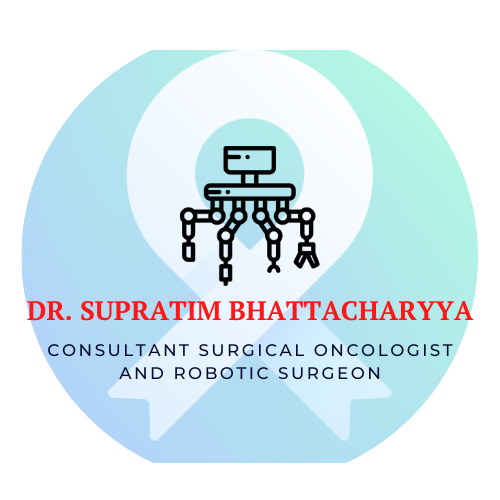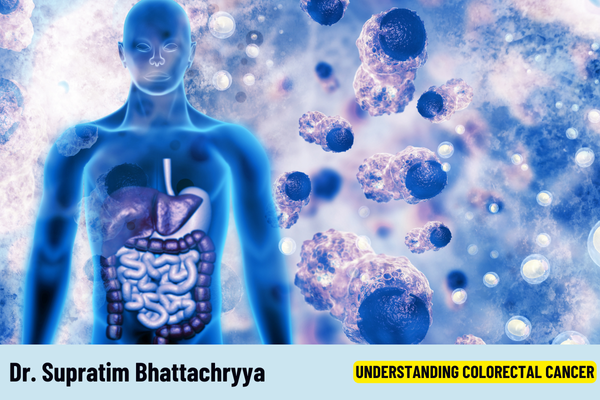Colorectal cancer, affecting the colon or rectum, is one of the most common cancers worldwide. Dr. Supratim Bhattacharyya, a leading oncologist in South Kolkata, offers valuable insights into this disease, highlighting its causes, symptoms, and treatment options.
What is Colorectal Cancer? Colorectal cancer originates in the cells lining the colon or rectum. It typically begins as benign polyps that can transform into malignant tumors over time if not detected and removed early.
Causes and Risk Factors Several factors contribute to the development of colorectal cancer:
- Age: Risk increases with age, particularly after 50.
- Genetics: Family history of colorectal cancer or inherited syndromes such as Lynch syndrome.
- Lifestyle: Diet high in red or processed meats, lack of physical activity, obesity, smoking, and excessive alcohol consumption.
- Medical Conditions: Chronic inflammatory bowel diseases like Crohn’s disease or ulcerative colitis.
Symptoms Early stages of colorectal cancer might not present noticeable symptoms. As the disease progresses, common symptoms include:
- Changes in bowel habits (diarrhea or constipation)
- Blood in stool or rectal bleeding
- Persistent abdominal discomfort (cramps, gas, pain)
- Unexplained weight loss
- Weakness or fatigue
Diagnosis Screening is crucial for early detection and includes:
- Colonoscopy: Direct visualization and removal of polyps.
- Fecal Occult Blood Test (FOBT): Detects hidden blood in stool.
- Imaging Tests: CT scans and MRIs to determine the extent of cancer spread.
Treatment Options Treatment depends on the cancer’s stage and location:
- Surgery: Primary treatment for removing cancerous tissues.
- Radiation Therapy: Used to shrink tumors before surgery or eliminate remaining cancer cells post-surgery.
- Chemotherapy: Administered to kill cancer cells or prevent their growth.
- Targeted Therapy: Drugs that target specific cancer cell mechanisms.
Prevention and Early Detection Adopting a healthy lifestyle, including a balanced diet rich in fruits, vegetables, and whole grains, regular exercise, and avoiding smoking and excessive alcohol, can reduce the risk. Regular screening, especially for those over 50 or with a family history, is vital for early detection and successful treatment. Conclusion Dr. Supratim Bhattacharyya emphasizes the importance of awareness and early detection in combating colorectal cancer. With advancements in medical technology and comprehensive treatment plans, patients can achieve better outcomes and improve their quality of life. Regular check-ups and proactive health measures are key to preventing and managing this prevalent disease effectively.

